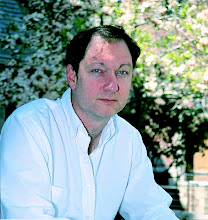43 million people have died from Malaria since DDT was banned
DDT, once hailed as a "miracle" pesticide, was first used widely during World War II to help control everything from typhus to the body lice on U.S. soldiers. Within a few years, the U.S. was free of malaria. In 1955, the WHO endorsed DDT use for a global campaign that within 12 years freed developed countries, along with parts of Asia and Latin America, from risk of infection.
But reports in the 1960s, launched by environmentalist Rachel Carson in the book "Silent Spring," that DDT was killing off bald eagles, in part by thinning their eggshells, and seeping into the food chain, raised concerns about the powerful chemical's heavy use. Environmental protest led the Environmental Protection Agency to ban the use of DDT in the U.S. in 1972. It currently is made by one company in India and two in China. . . .
Adding up the cost of this environmentalist mistake we find that: "At least 43 million people -- mostly black kids -- have needlessly died since DDT was banned . . . ."
Environmentalist groups still oppose any use of DDT.
While DDT is very effective, its use for malaria control alarms some environmental groups, which insist the pesticide poses dangers to humans and the environment. The Pesticide Action Network, a San Francisco group, disagreed with the WHO's stance that DDT is safe, insisting that the pesticide increases the probability of cancer and developmental delays in children.
In a speech Friday announcing the new plan, Dr. Kochi urged environmental groups who have expressed concern to "help save African babies as you are helping to save the environment."
Communist China under Mao is probably the only country responsible for killing more people than the environmental movement to ban DDT.







3 Comments:
This is a good topic. It exposes the fact that environmentalists will either lie or make bogus assertions to achieve their goals.
The current lie may be global warming.
Africa must learn to carry it's own weight. And why don't other African countries help countries in Africa - why is it always the responsibility of the US and others that should provide aid to Africa. If American taxpayers want to help Africa then they (we) should send a check to entities that provide aid to African countries; but our government should never send taxdollars to Africa.
Can you imagine a prosperous Africa competing in the global economy increasing the demand (and price) of oil. And contributing to pollution. It's not in the interest of US taxpayers to have their money go to another country, especially Africa. When governments send aid to Africa they are only contributing to it's dependence on welfare.
i live in Africa. A mosquito net works just fine... Anecdotal? Yes. But as with gun bans, you need alternative means of protecting yourself.
ear anonymous:
Thanks very much for your comment. I know that one of the links that I posted to noted that in countries that were wealthy enough to have screens in the windows you didn't see a recurance of Malaria once DDT was stopped being used. So you are undoubtedly correct that there are substitute methods to stop Malaria. While nets undoubtedly work well, there were many countries where Malaria had become rare prior to DDT stopped being used, but once the DDT was stopped there was a big increase in Malaria. The bottom line is that while nets can work as well, in practice people apparently don't use them as efficiently.
Post a Comment
Links to this post:
Create a Link
<< Home